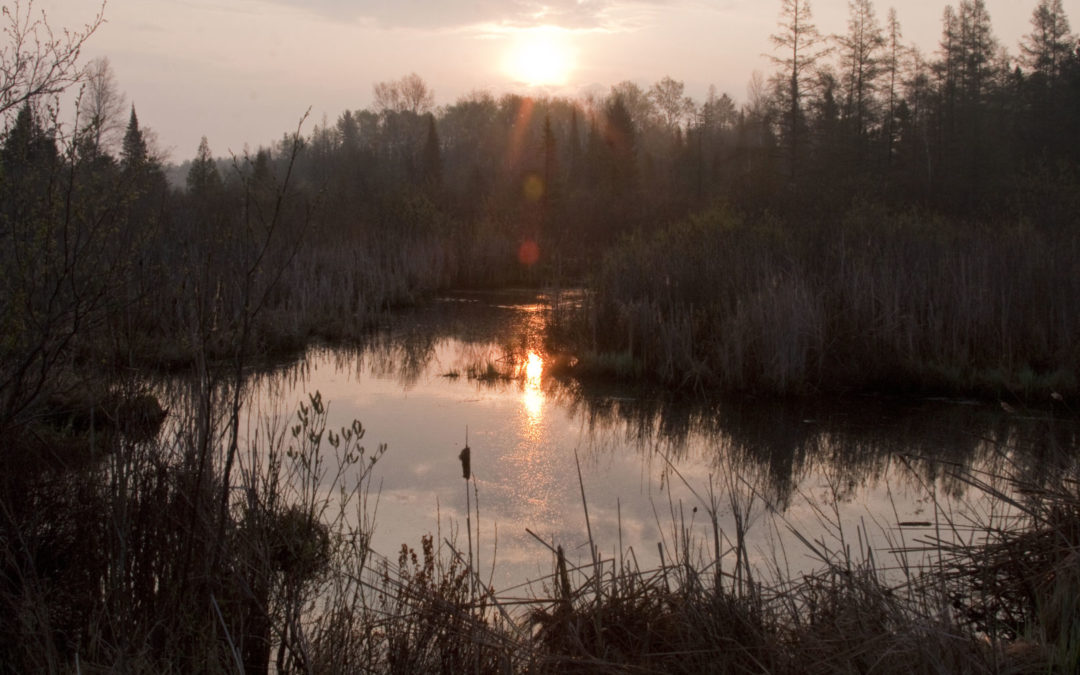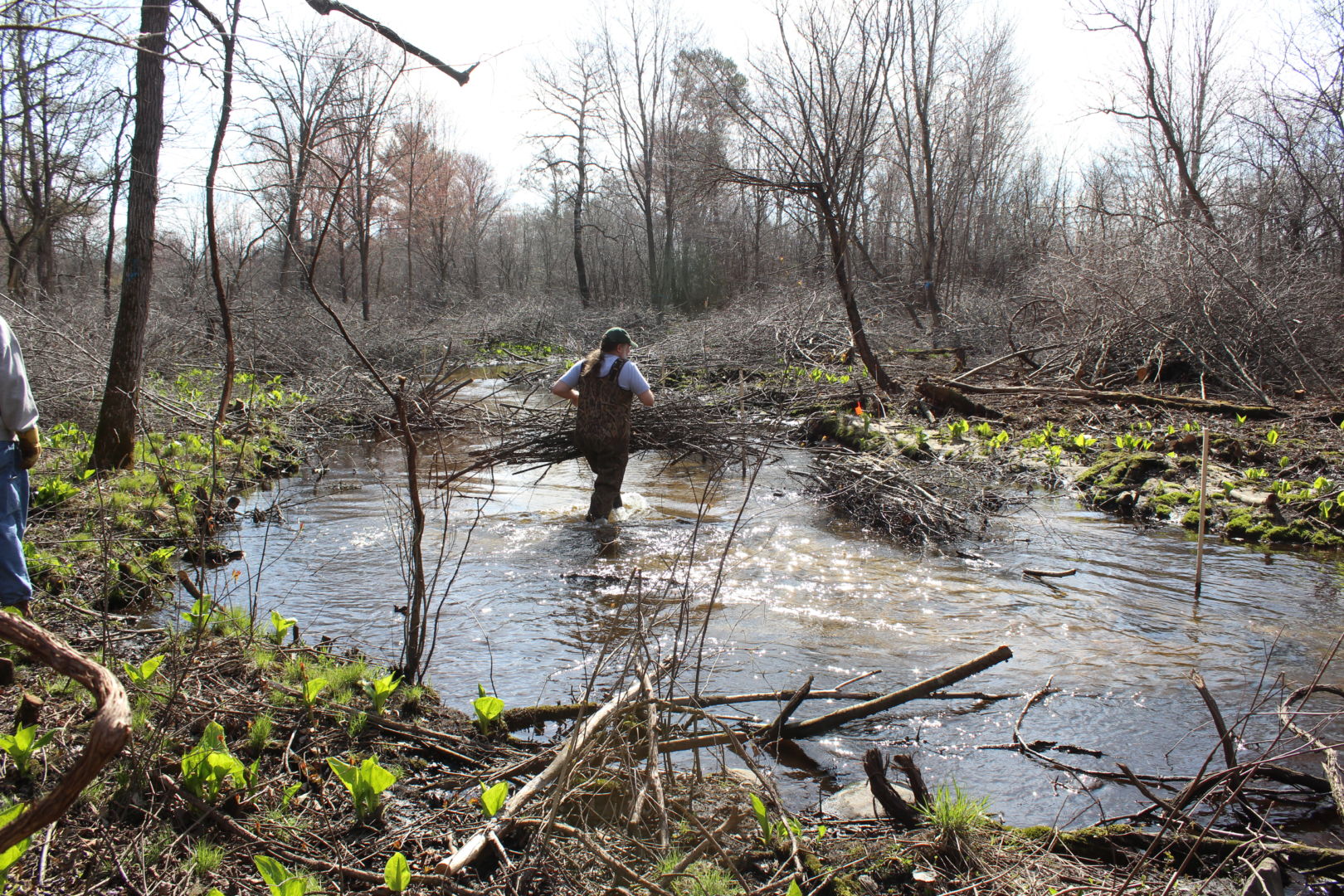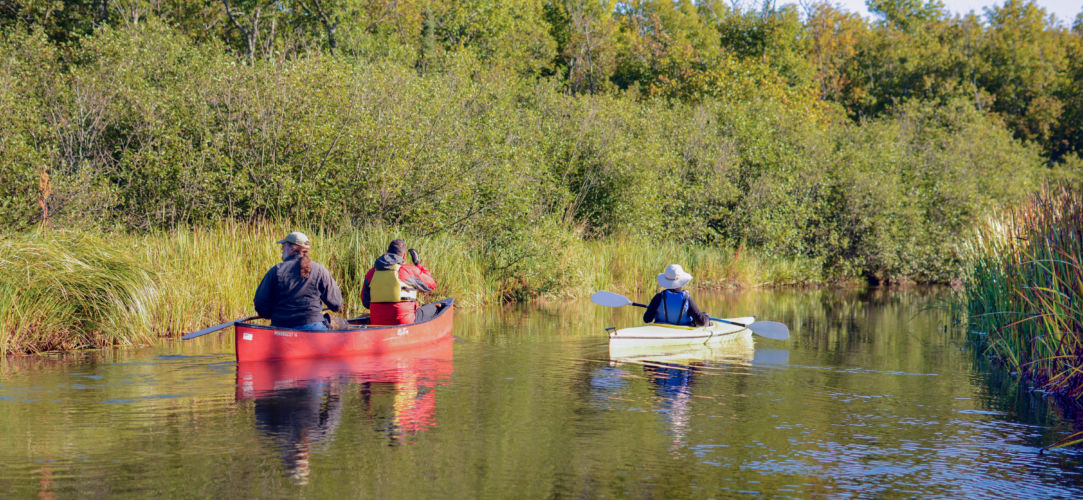Many say that change is the only constant in nature. Large changes come slowly—much of the time. For example, oxbow wetland creation in a floodplain may take decades, wetland plant community succession may take centuries, peat accumulation in a bog or fen can happen over millennia.
Though change in nature mostly comes slowly, when it comes fast, it comes fast! May marked the 40th anniversary of the eruption of Mount St. Helens. When that volcano blew its top, it leveled the landscape around it and dumped thick ash over half of Washington state. Natural events like this are labeled “catastrophic” because they very quickly induce large-scale change, creating a new normal for the affected area. We can estimate the frequency of natural catastrophic events, and we can prepare for their ultimate arrival, but we can’t pinpoint when they’ll hit until they hit. And after a volcano erupts, no one talks about digging up the ash and putting the material back where it came from. We accept the natural catastrophic changes we have no control over and adjust our actions moving forward.
When human action causes swift, large-scale change on the landscape, however, we cannot merely accept and adapt. We must take ownership of that change and work to reverse the negative consequences of our actions. And we’ve had our share of human-induced catastrophic change in Wisconsin over the past 100-150 years. We’ll be sharing more information in our newsletter and blog this year about how we’ve altered the course and flow of water across our landscapes and how wetlands have a critical role to play in solving the many of the challenges resulting from these changes.
The pandemic and the upheaval it has brought here and around the globe also represents rapid, catastrophic change. Some of these changes we need to accept and accommodate to keep ourselves and our communities safe: wearing masks, maintaining social distance. Wisconsin Wetlands Association (WWA) is adapting by getting our staff set up to work effectively from home and by changing the way we carry out some of our programs. Our work to promote the protection, restoration, and care of our wetlands—and our ongoing efforts to address human-induced changes on the landscape—continues. We are grateful for your continued support through these unknown times.
Other conditions revealed by natural, rapid, catastrophic change, however, should not be accepted. The pandemic has laid bare pervasive and systemic racial and economic oppression in our nation—conditions resulting from long-term, deliberate human actions. Millions of people, including thousands on the streets outside our offices, have come out to highlight these injustices and advocate for systemic change. Just as we must take ownership of human-caused changes to the landscape that cause harm, we must also take ownership of human-caused inequity in our society.
WWA supports the peaceful protests against injustice and oppression, and we support the individuals and organizations working to create a new, more just and equitable “normal.” As we recover from the pandemic, we cannot go back to the status quo of systemic inequality. As a member of Community Shares of Wisconsin (CSW), WWA is proud of our fellow member organizations who are working to create systemic social change. If you want to support their work, please consider making a gift to the CSW Fund for a Just Recovery at communityshares.com/the-fund-for-a-just-recovery.
Related content
What is the Little Plover River Watershed Enhancement Project?
Learn about WWA’s work to repair the hydrology and restore health to the Little Plover River.
From the Director: The speed of things




